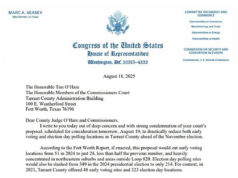The U.S. National Intelligence Council’s report on global trends, published in November, predicts that al Qaeda “may decay sooner” than many experts expect because of the terrorist organization’s “unachievable strategic objectives, inability to attract broad-based support, and self-destructive actions.” Hot on the report’s heels came the terrorist attacks in Bombay (Mumbai) last week, which killed at least 150 people. Is the National Intelligence Council wrong?
Not at all. There is no evidence that al Qaeda had anything to do with the attacks in India’s financial capital, nor does it seem very likely. I predict that this event will be forgotten within a year by everyone except families of victims and people who were actually there – as it should be.
A much worse attack in Bombay 15 years ago killed 257 people and injured 713 others. Although the 9/11 atrocity in the United States in 2001 has come to overshadow all other terrorist attacks in terms of loss of life, the Bombay bombings of 1993 remain the third-worst incident in the history of terrorism. Yet who remembers them today?
I do, because I was in Bombay with a film crew at the time, and they barely escaped with their lives. The Stock Exchange was bombed only 20 minutes after they finished filming there. For hours afterward, the center-city streets were full of people who had evacuated their offices for fear of more bombs, and I still recall how calm and disciplined they were.
I was in central London during the 2005 bombings that killed 52 people, and the mood was the same. Given a story like this, the media will always try to depict it as the apocalypse on roller blades, but the general public didn’t buy it. The attacks were a tragedy for a few hundred people and an enormous nuisance for hundreds of thousands of others, but they didn’t change anything important. How could they?
Terrorism is only as important as you let it be. The people who do it, whatever their goals, are by definition few, weak, and marginal. If they were many, strong, and central, they would be a major political movement or a government, and they wouldn’t feel the need to resort to terrorism. Since they are not, the wisest course is to treat them as common criminals.
All good anti-terrorist strategies deny the terrorists the status of a legitimate enemy. Maybe you have to get the army’s help occasionally when the police are overstretched, but dealing with terrorists should remain primarily the job of the police and the ordinary courts. Don’t pass any special laws, and never set up special courts and detainment camps. The terrorists are marginal, so keep them that way.
Germany wisely followed these rules in the 1970s, at the time of the Baader-Meinhof Gang. Britain did less well in Northern Ireland, detaining hundreds of innocent people and implicitly granting the IRA the status of a liberation army. Russia broke all the rules in Chechnya, although it finally managed to smother the insurgency through sheer weight of numbers and firepower.
India, which for the past two decades has suffered from worse terrorist attacks than any other independent country, handles them very well: It does not let them grow into a national emergency requiring extreme measures. That’s why the latest atrocity in Bombay, like that in 1993, while tragic and wicked, will soon be seen as a relatively small event in the life of a nation.
The response of the Bush administration to the 9/11 attacks, by contrast, provides a horrible example of the cost of overreaction: Two invasions, two lengthy military occupations by American troops, and two major guerilla wars against the occupations. A huge rise in the reputation of al Qaeda and the radicalization of political opinion throughout the Muslim world. Torture abroad and a major assault on American civil liberties at home.
For seven years, George W. Bush has served as al Qaeda’s most valuable (though unwitting) ally. The fact that the terrorist organization is still in decline despite having such a useful idiot in charge of American foreign policy is proof of what a marginal outfit it is. As the National Intelligence Council said, al Qaeda’s strategic goals are unrealistic, and its actions are so brutal that they alienate most of the people whose support it wants.
Most people assume that the long American panic is now coming to an end. If Barack Obama’s talk about winning the war in Afghanistan and violating Pakistani territory in pursuit of Osama bin Laden is just a smokescreen to avoid public controversy until he is ready to walk away from the “war on terror,” then all may yet be well. But it is also possible that Obama really believes in waging a war against terror, in which case the nightmare will continue.
Articles by London-based journalist Gwynne Dyer are published in 45 countries.











